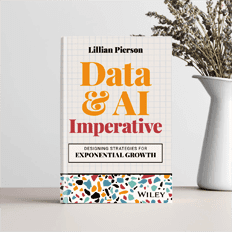Do You Have What it Takes to Become a Data Engineer? // In this brief article you’ll see the difference between data engineering and other common data roles, as well as the core Data Engineer skills / responsibilities, and how to become one!

What is a Data Engineer?
Data engineers are responsible for building pipelines and architectures that enable data analysis at scale. They work with elements like data warehouses, data lakes, SQL and NoSQL databases, static data sources, and streaming data feeds. Their job is to tie these elements into a working system that allows the organization to process and derive value from its data.
The role requires a set of technical skills, including SQL/NoSQL database design, automation, and an in-depth understanding of multiple programming languages. However, data engineers also need cross-functional communication skills to understand what business executives want to achieve with the company’s datasets.
In this article, you will learn:
- Data Engineer vs Data Scientist vs Data Analyst
- Data Engineer Skills and Responsibilities
- Cloud Data Engineer Responsibilities
- How to Become a Data Engineer?
- Academic Degree and Project Experience
- Build Your Technical Skills
- Technical Certifications
Data Engineer vs Data Scientist vs Data Analyst
I covered this topic in-depth here, but…
A data scientist is a senior role, using advanced methods like clustering, neural networks, and decision trees to analyze datasets and derive insights. Data scientists receive inputs from data analysts and data engineers, create analysis strategies, and build visualizations and dashboards for business teams and leadership. For more on the Data Scientist’s epic career path, watch this video here.
A data analyst reviews numeric data and performs business-related analysis. This role typically uses tools like Excel and SQL databases, and must have expertise in data modeling and data preparation.
Data engineers create a bridge between analysts and data scientists. A data engineer builds and maintains systems that can ingest, process, and integrate data sets to facilitate business analysis.
Data Engineer Skills and Responsibilities
A data engineer typically has the following responsibilities within an organization:
-
- Data architecture—designing and implementing the architecture of the data platform.
- Data related systems—developing, customizing and managing data-related tools, databases, data warehouses, and analytics systems.
- Data migration—transferring large amounts of data between data centers, including for mission critical systems (to see what this involves, read this post on SAP HANA database migration).
- Data pipeline maintenance—data engineers test the stability and performance of data pipelines, monitor them in production, and troubleshoot issues.
- Deploying machine learning models—data engineers are often responsible for preparing data for machine learning analysis, configuring data properties, and managing computing resources used to run machine learning models.
- Enable data access—data scientists may need to enable access to data for data scientists, analysts, other parts of the organization, or third parties who need to interact with the data.
- Data analysis and visualization—although formally this is the responsibility of analysts or data scientists, in smaller organizations data engineers also help derive insights from data and create dashboards and visualizations.
 Cloud Data Engineer Responsibilities
Cloud Data Engineer Responsibilities
Cloud data engineers (also known as cloud engineers or cloud developers) manage company applications and data in the cloud, as well as all technical tasks related to planning, designing, migrating, monitoring and managing cloud systems.
The responsibilities of a cloud data engineer include some or all of the following:
- Migrate local enterprise applications and their data to public cloud infrastructure such as Amazon EC2
- Design and deploy new applications and datasets directly in the cloud
- Monitor and manage cloud-based databases such as AWS database services, data warehouses and data lakes
- Implement cloud services to support and maintain cloud-based data driven applications
- Monitor the performance of your cloud-based data processes and troubleshoot performance issues.
- Identify cost reduction strategies to reduce ongoing costs of cloud data infrastructure
- Automate data-related cloud services and data pipelines using cloud provider or third party tools
- Develop disaster recovery and business continuity plans to safeguard sensitive data
How to Become a Data Engineer?
Here a few ways to start on the path to a data engineering career.
Academic Degree and Project Experience
When starting on a data engineering career, you should earn a degree in statistics, applied math, computer science/engineering, or a similar field. You will also need experience in real-world projects, which you can achieve via internships, entry-level positions, or building up a portfolio by carrying out personal projects.
Build Your Technical Skills
Beyond academic and practical experience, make sure you have a good grasp of the following:
- SQL queries and SQL database management
- Programming languages, particularly Python and R
- Big data platforms including Spark and Hadoop
- Streaming data platforms such as Kafka and Amazon Kinesis
- Basics of machine learning
- Cloud infrastructure—Amazon Web Services data infrastructure is a good start
Technical Certifications
The following certifications can be useful in advancing your data engineering career:
- Certified Data Management Professional (CDMP)—an important certification for database experts, which is well known and respected by employers
- Data Science Council of America (DASCA) Associate/Senior Big Data Engineer
- Amazon Web Services (AWS) Certified Data Analytics
- Google Professional Data Engineer
- IBM Certified Data Architect – Big Data
Conclusion
A data engineer is a challenging role that is central to the new data economy. You will be at the center of digital transformation efforts and data migration projects that affect the entire organization, and its most important assets.
We covered several responsibilities of data engineers, including data architecture, data pipelines, machine learning operations, and enabling data access. Also, we covered three ways you can advance your data engineering career:
- Get a relevant academic degree and gain project experience
- Build technical skills in relevant fields like SQL, Python, Spark/Hadoop, and Kafka/Kinesis
- Get technical certifications from recognized organizations like CDMP, DAMA, or DASCA
We hope this will be helpful in your journey to a successful data engineering role.


 Cloud Data Engineer Responsibilities
Cloud Data Engineer Responsibilities


